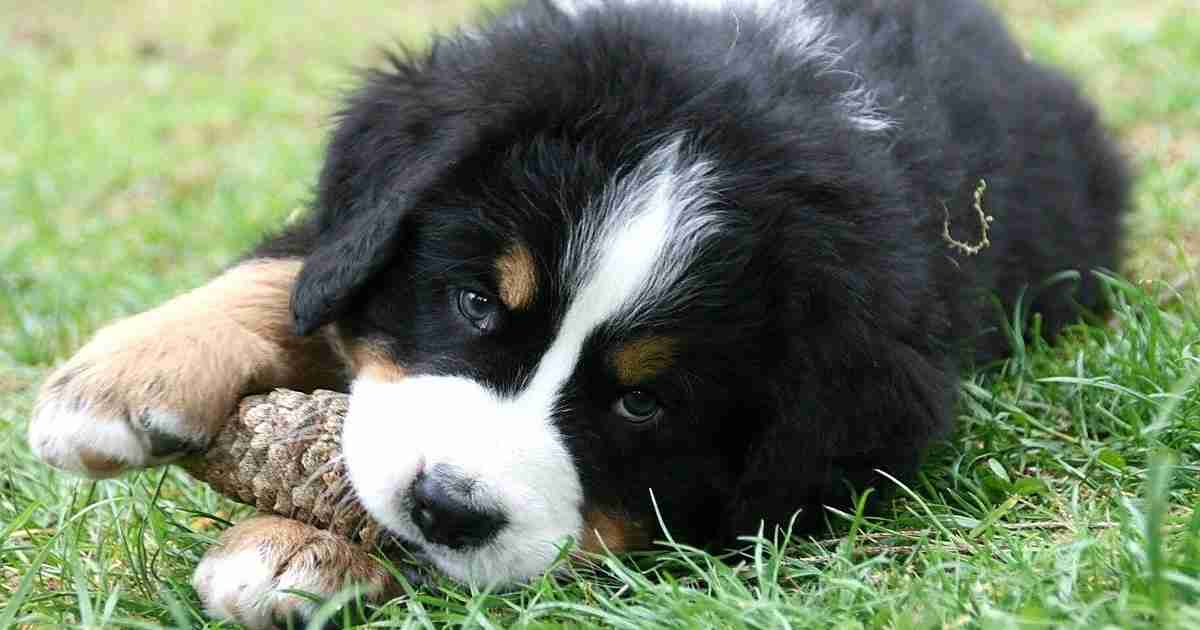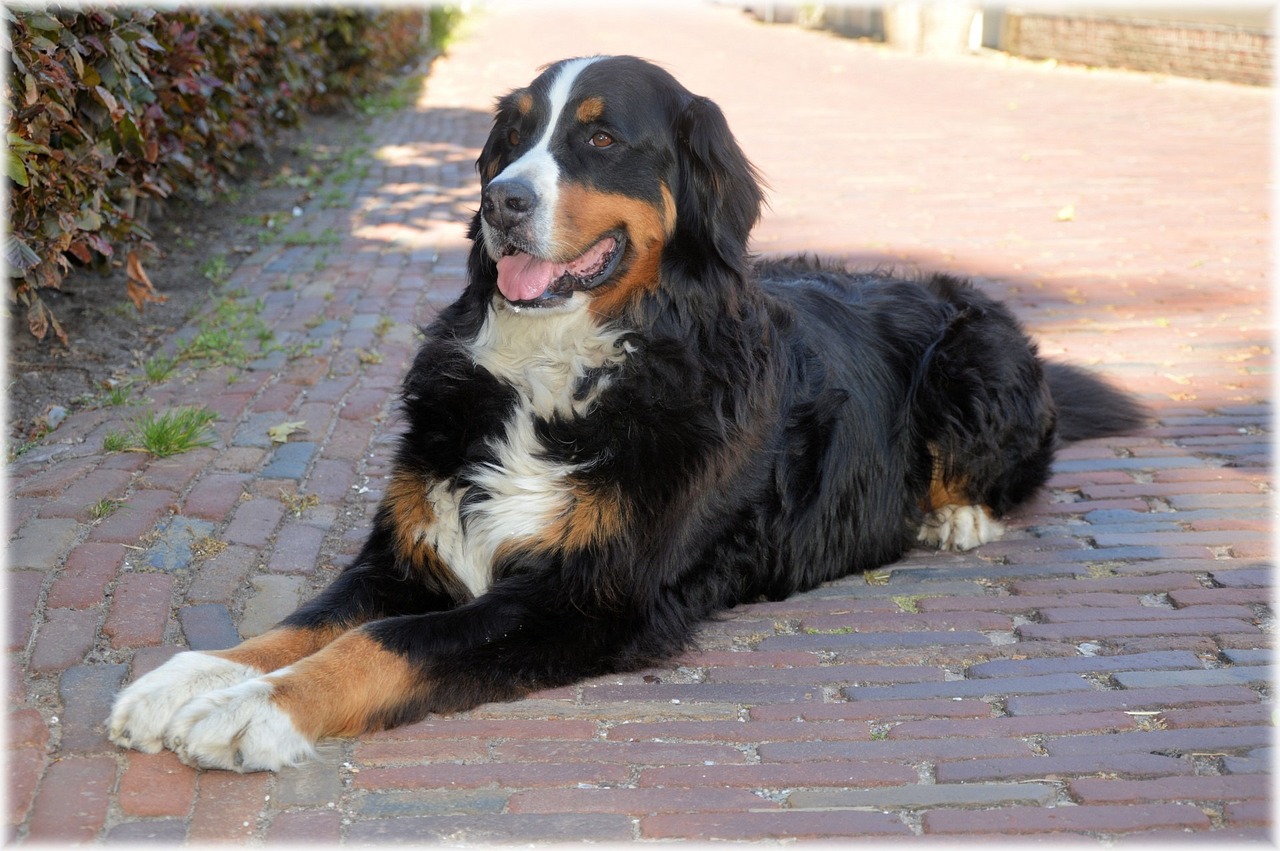When should a Bernese Mountain Dog be neutered? It’s an important question for dog owners seeking to make the best decision for their furry friends. Neutering is a common procedure that involves removing a dog’s reproductive organs to prevent them from reproducing. But when is the right time to have this done? Let’s explore the factors to consider in determining the optimal age for neutering a Bernese Mountain Dog.
Timing is crucial when it comes to neutering a Bernese Mountain Dog. While there is no one-size-fits-all answer, many veterinarians recommend waiting until the dog is at least six to eight months old. This allows the dog to grow and develop adequately before undergoing surgery.
The health and growth of the dog, as well as their breed, can also influence the timing. Larger dog breeds like Bernese Mountain Dogs tend to mature more slowly than smaller breeds. It’s essential to consult with your veterinarian to ensure the procedure is done at the right time to promote your dog’s overall well-being. So, let’s dive deeper into the factors to consider when deciding when to neuter your Bernese Mountain Dog.

When Should a Bernese Mountain Dog be Neutered?
Welcoming a Bernese Mountain Dog into your family is an exciting and rewarding decision. As a responsible pet owner, you may have questions about when to have your Bernese Mountain Dog neutered. There are various factors to consider when deciding on the appropriate timing for neutering your dog, such as health benefits, growth considerations, and behavioral considerations. In this article, we will explore the optimal age for neutering a Bernese Mountain Dog and provide you with the information you need to make an informed decision for your furry friend.
The Optimal Age for Neutering a Bernese Mountain Dog
Neutering, also known as castration, is the surgical removal of a male dog’s testicles, resulting in the inability to reproduce. The optimal age for neutering a Bernese Mountain Dog is typically between six to nine months. However, the exact age for neutering can vary slightly based on individual circumstances and the advice of your veterinarian.
It is important to note that early neutering, performed before the age of six months, may have certain advantages, such as reducing the risk of certain cancers and preventing unwanted behaviors associated with intact males. On the other hand, delaying neutering until the age of one year or older allows the dog to fully develop physically and mentally. Consulting with your veterinarian will help you determine the best age for neutering your Bernese Mountain Dog based on their individual health, behavior, and lifestyle.
Health Benefits of Neutering a Bernese Mountain Dog
Neutering your Bernese Mountain Dog provides several health benefits. By removing the testicles, you eliminate the risk of testicular cancer, reducing the chances of your dog developing this type of cancer later in life. Additionally, neutering can help prevent other health issues, such as prostate problems and certain types of tumors.
Neutering also reduces the risk of certain behavioral problems. Intact male dogs are more prone to territorial aggression and roaming behavior. By neutering your Bernese Mountain Dog, you can help curb these behaviors, making them calmer and easier to handle. Neutering also decreases the likelihood of your dog marking their territory with urine, reducing the need for frequent cleanup and potential damage to your home.
Overall, neutering your Bernese Mountain Dog has numerous health benefits and can contribute to a happier and healthier life for your furry companion.
Growth Considerations for Neutering a Bernese Mountain Dog
The growth of a Bernese Mountain Dog is an important factor to consider when deciding on the timing of neutering. Bernese Mountain Dogs are large breed dogs and have a longer growth period compared to smaller breeds. Delaying the neutering procedure until the dog is fully grown allows for proper physical development.
Early neutering can potentially affect the growth plates in the bones. While scientific studies have not definitively proven a direct link between early neutering and joint issues, there is some anecdotal evidence suggesting that delaying neutering until after the growth plates have closed may reduce the risk of certain bone and joint problems, such as hip dysplasia and cruciate ligament injuries.
Consulting with your veterinarian will help you make an informed decision about when to neuter your Bernese Mountain Dog, taking into account their individual growth rate and potential risks associated with early neutering.
Behavioral Considerations for Neutering a Bernese Mountain Dog
Neutering can have a significant impact on your Bernese Mountain Dog’s behavior. One of the primary reasons people choose to neuter their male dogs is to reduce the likelihood of unwanted sexual behaviors.
Intact male dogs tend to exhibit territorial aggression, which can be challenging to manage, particularly in multi-dog households. Neutering can help alleviate this aggression, making your Bernese Mountain Dog more amiable and less prone to conflicts with other dogs.
Roaming behavior is another concern for intact males. Unneutered dogs may be more inclined to wander off in search of a mate, which puts them at risk of getting lost, injured, or involved in accidents. Neutering can curb this roaming behavior and help keep your furry friend safe within your home and surroundings.
By opting to neuter your Bernese Mountain Dog, you can potentially reduce unwanted behaviors associated with intact males, creating a more harmonious living environment for both you and your furry companion.
Factors to Consider for Neutering Your Bernese Mountain Dog
While the optimal age for neutering a Bernese Mountain Dog is typically between six to nine months, there are individual factors to consider. Consulting with your veterinarian is crucial in determining the best age for your Bernese Mountain Dog’s neutering procedure.
The age at which you should neuter your Bernese Mountain Dog depends on various factors, including their health, behavior, lifestyle, and growth rate. Some Bernese Mountain Dogs may reach sexual maturity earlier or later than others.
Ultimately, the decision of when to neuter your Bernese Mountain Dog should be made in consultation with your veterinarian, who will assess your dog’s individual circumstances and provide the best recommendation based on their professional expertise.
Key Takeaways: When Should a Bernese Mountain Dog Be Neutered
- 1. Neutering a Bernese Mountain Dog is typically recommended between 6 to 12 months of age.
- 2. Waiting until the dog reaches full physical maturity can help prevent certain health issues.
- 3. Consulting with a veterinarian is crucial to determine the best timing for neutering.
- 4. Generally, it is best to neuter male dogs before they develop unwanted dominant behaviors.
- 5. Neutering can help reduce the risk of certain reproductive health problems such as testicular cancer.
## Frequently Asked Questions
**Q1: What is the best age to neuter a Bernese Mountain Dog?**
A1: The best age to neuter a Bernese Mountain Dog is typically between 6 and 9 months old. Neutering at this age helps prevent unwanted behaviors, like marking territory and aggression, from developing. It also reduces the risk of certain health issues, including certain cancers and infections.
Neutering a Bernese Mountain Dog too early can interfere with their growth and development, so it’s important to wait until they have reached a certain level of maturity. It’s always best to consult with your veterinarian, as they can provide personalized recommendations based on your dog’s individual needs.
**Q2: Are there any disadvantages to neutering a Bernese Mountain Dog too early?**
A2: Yes, there can be disadvantages to neutering a Bernese Mountain Dog too early. If a dog is neutered before they have fully developed, it can impact their bone growth and potentially lead to orthopedic issues. Early neutering can also affect the dog’s coat and overall appearance, as well as the temperament and behavior.
While there are benefits to neutering, it’s important to strike a balance and wait until the dog is mature enough for the procedure. Your veterinarian will be able to guide you on the best timing for your Bernese Mountain Dog’s neutering based on their individual health and growth.
**Q3: Can neutering a Bernese Mountain Dog affect their energy levels?**
A3: Neutering a Bernese Mountain Dog can potentially affect their energy levels, but the impact varies from dog to dog. Some dogs may experience a decrease in energy, while others may not show any significant changes. Hormonal changes after neutering can influence the dog’s metabolism and energy levels.
It’s important to note that factors like diet, exercise, and overall health also play a role in a dog’s energy levels. If you notice any significant changes in your Bernese Mountain Dog’s energy levels after neutering, it’s best to consult with your veterinarian to ensure there are no underlying health issues.
**Q4: Does neutering a male Bernese Mountain Dog prevent certain health issues?**
A4: Neutering a male Bernese Mountain Dog can help prevent certain health issues. It reduces the risk of testicular cancer and other diseases of the reproductive system. Neutering also lowers the chances of certain types of aggression, as well as the urge to roam and mark territory.
However, it’s important to note that neutering alone does not guarantee the prevention of all health issues. Regular veterinary check-ups, a balanced diet, and proper exercise are still essential in maintaining the overall health and well-being of your Bernese Mountain Dog.
**Q5: Can female Bernese Mountain Dogs be spayed instead of neutered?**
A5: Yes, female Bernese Mountain Dogs can be spayed instead of neutered. Spaying is the surgical procedure done to remove the ovaries and uterus, while neutering refers specifically to the procedure done on male dogs. Spaying female Bernese Mountain Dogs is recommended to prevent unwanted pregnancies and the risk of certain health issues, such as uterine infections and mammary tumors.
Spaying can also help reduce certain behavioral problems associated with intact female dogs, such as excessive roaming and aggression during heat cycles. Your veterinarian can guide you on the best timing for spaying your Bernese Mountain Dog based on factors like their age, health, and previous heat cycles.

Summary
Getting a Bernese Mountain Dog neutered is an important decision for their overall health and behavior. Neutering can help prevent certain diseases and reduce aggression. It is generally best to wait until they are physically mature to ensure proper growth and development.
The ideal time to neuter a Bernese Mountain Dog is around 18 to 24 months old, but it can vary based on individual needs and circumstances. Discussing with a veterinarian is crucial to make the right decision for your furry friend.
